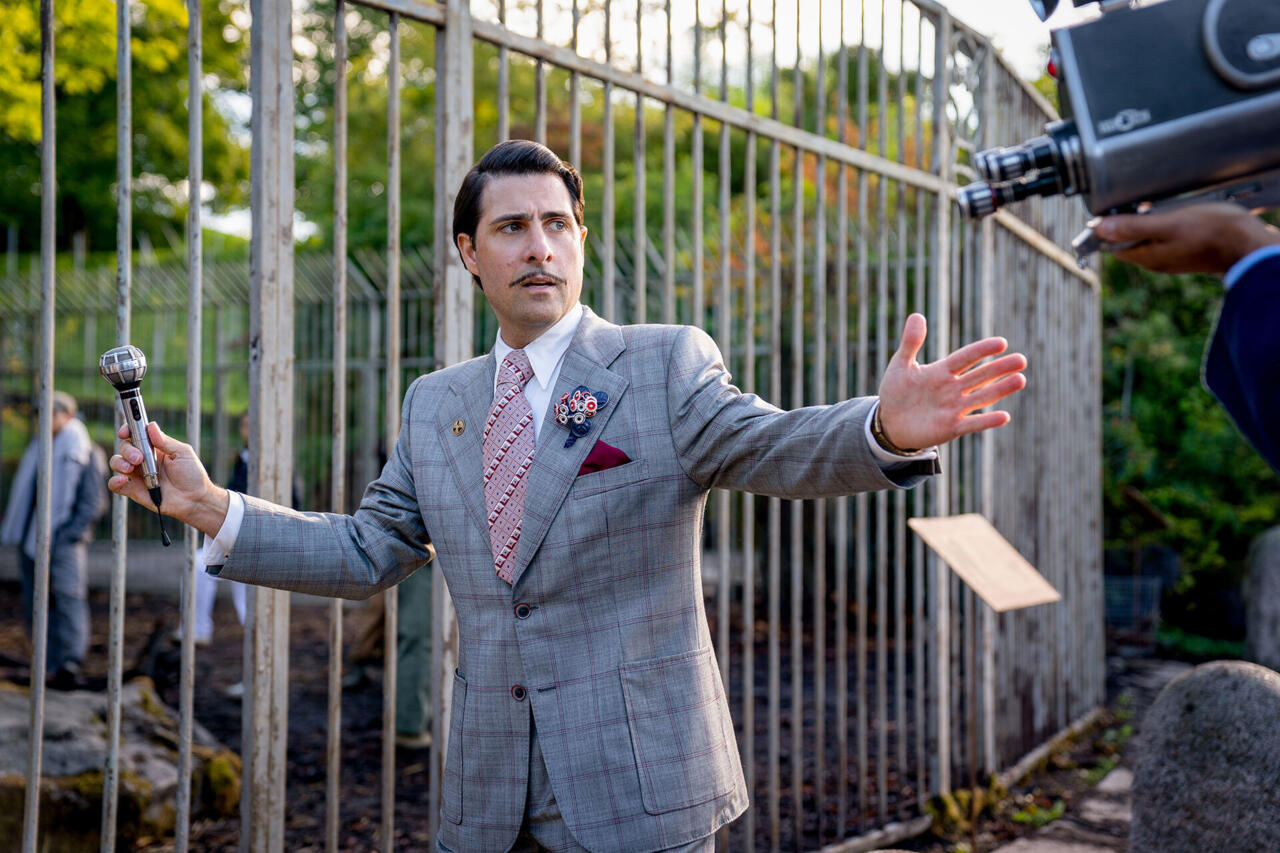I wasn’t really worried about whether or not director Francis Lawrence, who helmed three of the four previous Hunger Games movies, would deliver a very good and watchable film with The Hunger Games: Mockingbird and Snakes. but me Was I’m worried that this won’t do much, since villain-based prequels aren’t usually all that worthwhile. What I found instead was the best and most interesting movie of this series.
There is a moment in the middle that sums it all up for me. Coriolanus Snow, who would grow up to become the villainous President Snow in the previous films, is tasked with helping the popular District 12 tribute in the tenth season of The Hunger Games to earn a lot of money from the father of one of his wealthy classmates. . The noble family of Snow has fallen on hard times in the years since the death of their patriarch, Father Coriolanus, and this award could bring them back to prominence.
His tribute, Lucy Graybeard, is wary of him even though he’s by far the most helpful mentor – she knows he probably wouldn’t do it because he cares for her. So he wants to know what’s really important to him: helping him survive this hell or winning money?
“Both,” Snow said baldly. Both Lucy Gray and I appreciated the honesty, but we both knew the statement meant he was looking out for himself and his family first, and if it was finally convenient, he would follow.
What I am saying here is that Coriolanus Snow is a great and fascinating character, played with frightening intensity by Tom Bight. From the beginning, like most of his classmates, he is scornful of tributes (“trash of the district”). It’s a classic romantic drama premise, with a gentleman who just might find out who he really is by falling in love with a wise, down-to-earth, low-class woman.
Fortunately, that’s not what The Ballad of Songbirds and Snakes is. Instead, this gritty prequel never aspires to be what you’d expect from a story like this—not one where dreams come true, but one where reality crashes down on our heroes.
It’s effective in part because it sticks close to the book, incorporating various textual details about Snow, his family, and his up-and-down relationship with Lucy Gray—but that also makes it very dense and nuanced compared to the book. Your average big budget movie. If you don’t already know the story, you might miss a detail the first time you watch it.
I don’t think this is a flaw as it doesn’t affect your ability to follow the plot. This will only make your second and third visits richer. That’s great, because there’s also something new here that makes repeat viewings worthwhile. Songbirds and Snakes takes place during the tenth season of the Hunger Games (Katniss’s first was the 74th) and is a very different show. Before all the glory and celebrity treatment we’d seen in the original movies, the tribute was treated very poorly – carried in rusty train cars and then kept in a zoo exhibit.
But ratings are down for the games, and so the very creepy Dr. Volumenia Gale (Viola Davis) wants to try new things to increase viewership and brainstorm ideas from her students, Snow’s class — Snow herself came up with the idea. . Sponsors buy supplies for participants — and guide tributes. And also featuring first-time host Jason Schwartzman’s Lucky Flickrman.
This early version of The Hunger Games is pretty fun to watch, and Schwartzman’s whole “we don’t really know what we’re doing here, so we’re all trying to see what sticks” thing is hilarious. , punctuates every death in games with some inappropriate and insensitive quips. Where Stanley Tucci’s Cesar Flickerman in the previous films was a seasoned television host, Schwartzman is more of a YouTube personality. Great.
But while other characters threaten to steal the show here and there, the film never loses focus on Snow — not as the protagonist. There are two characters, Lucy Gray and her classmate Sejanus, who serve as angels on Snow’s shoulders and tempt him with moral goodness—he’s not whispering an evil voice in his ear because he’s playing that role himself. . Rachel Zeigler, as Lucy Gray, gives a great performance about 95% of the time – the other parts are when she’s forced to utter some sort of Southern accented dialogue, which she can’t pull off. But for most of the film, he has just the right amount of energy, the energy of a singer and musician who doesn’t just talk about what’s right, and he’s more than energetic for the musical performances he gives.
Meanwhile, there’s Sejanus (Josh Andres Rivera), a bloody rich kid from District 2 whose family bought their way to the capital. Sejanus really wants to do something. Everything, to help those who are oppressed by the Panem dictatorship. And he regularly tries to rope in Snow, who simply doesn’t entertain these ideas — he’s too intent on being part of the system, not fixing it. Sijanus may be the hero of another version of this story.
With these two characters around, Snow has every chance to avoid becoming a nefarious dictator. But the story’s secret weapon is in its fate – if things had turned out a little differently, Snow could have found some kind of redemption. But they didn’t go any other way, and Snow became a force for evil. He didn’t sit there and carefully weigh every option before him and then choose to become a bad guy. Haste drove him to it.
This sense of snow simply riding the current is enhanced by the feverish, dreamlike quality of Francis Lawrence’s filmmaking, including plenty of wide-angle shots from cinematographer Joe Willems. When adapting a book, something is always lost – a movie can’t get inside the characters’ minds the way a novel can. But this approach to filmmaking gives every aspect of the film at least a different vibe than its predecessors in the series, and often a Very The different vibes keep things interesting despite the nearly three-hour running time. However, even with this length, the finish may be a bit off Both Neat and tidy — we go from the film’s climax to Snow the Big Bad in just a few minutes, but the Return of the King-esque ending sequence might help.
Ultimately, though, what really mattered to me about The Hunger Games: The Ballad of Songbirds and Snakes is that it manages to justify its existence. And more than that, with a story that humanizes Snow in the best possible way—by showing that he was probably doomed from the start.






